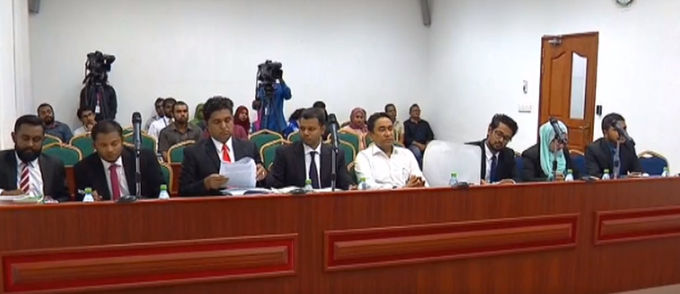Prosecution witness testimony concluded in ex-president’s money laundering trial
The admissibility of a statement from the anti-corruption chief was contested.

03 Sep 2019, 09:00
After concluding testimony from prosecution witnesses on Tuesday, the criminal court is due to rule on the admissibility of a video statement from the anti-graft watchdog’s former chief as evidence in the money laundering trial of former president Abdulla Yameen.
The court heard from bank officials and a former tourism minister about the source of US$1 million held in an escrow account formed under an agreement between Yameen and the Anti-Corruption Commission.
The 60-year-old opposition leader was charged over US$1 million deposited to his personal account by SOF, a company that was used to funnel the bulk of US$90 million stolen from state coffers. He is also accused of violating the agreement signed with the ACC to hold the US$1 million in an escrow account.
Yameen has admitted to transferring the SOF money to an investment account at the Maldives Islamic Bank and depositing US$1 million from a different source to the escrow account.
Become a member
Get full access to our archive and personalise your experience.
Already a member?
Discussion
No comments yet. Be the first to share your thoughts!
No comments yet. Be the first to join the conversation!
Join the Conversation
Sign in to share your thoughts under an alias and take part in the discussion. Independent journalism thrives on open, respectful debate — your voice matters.




